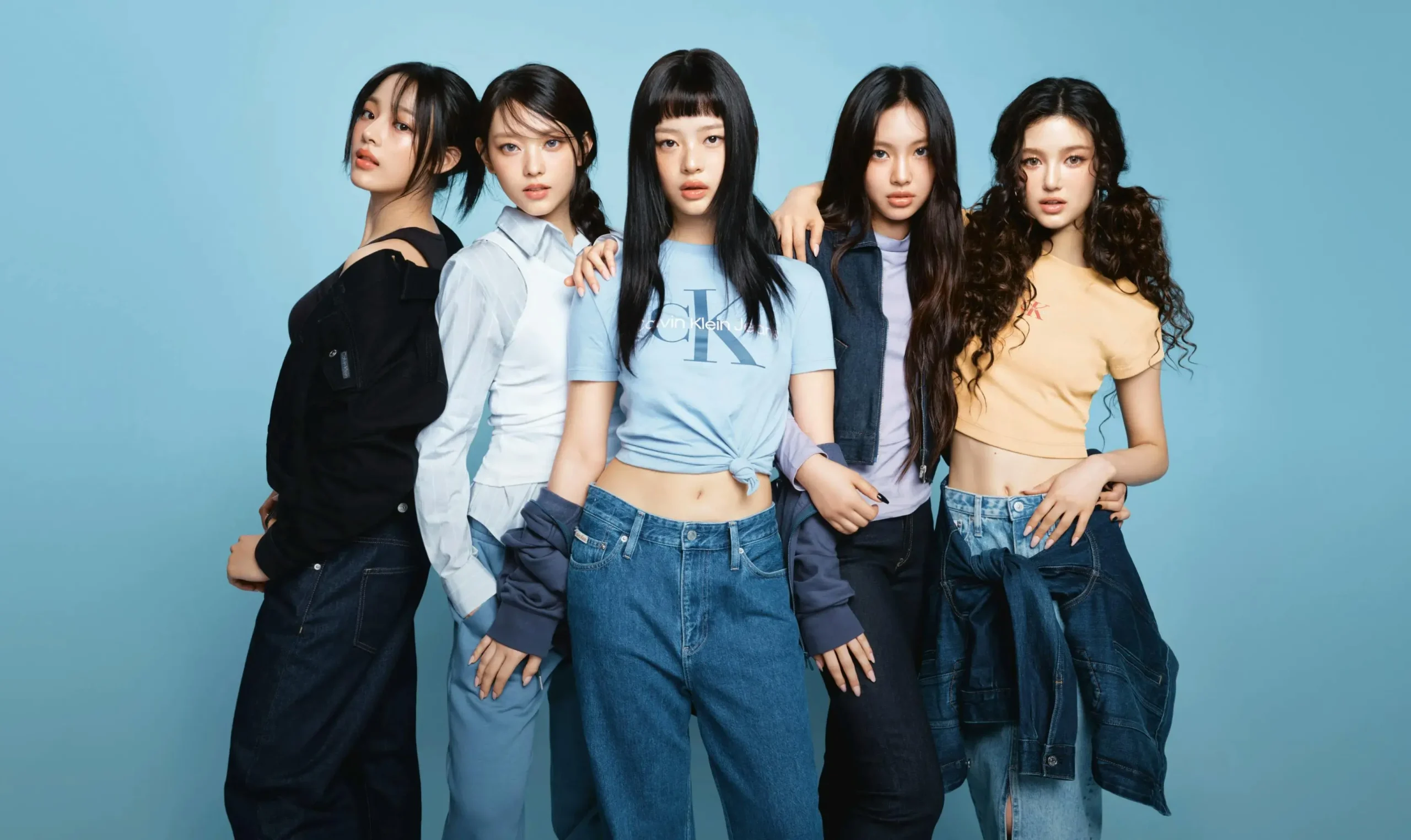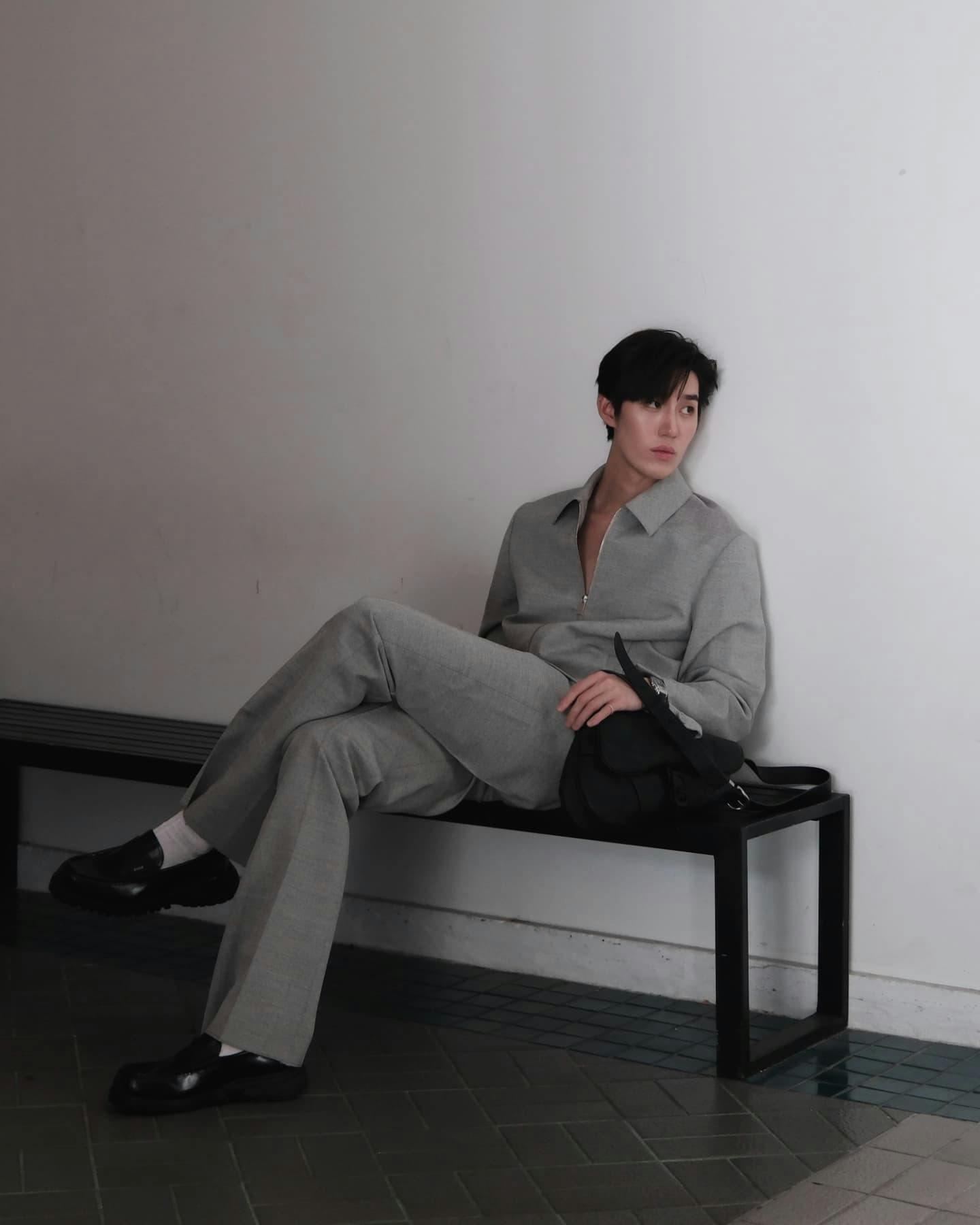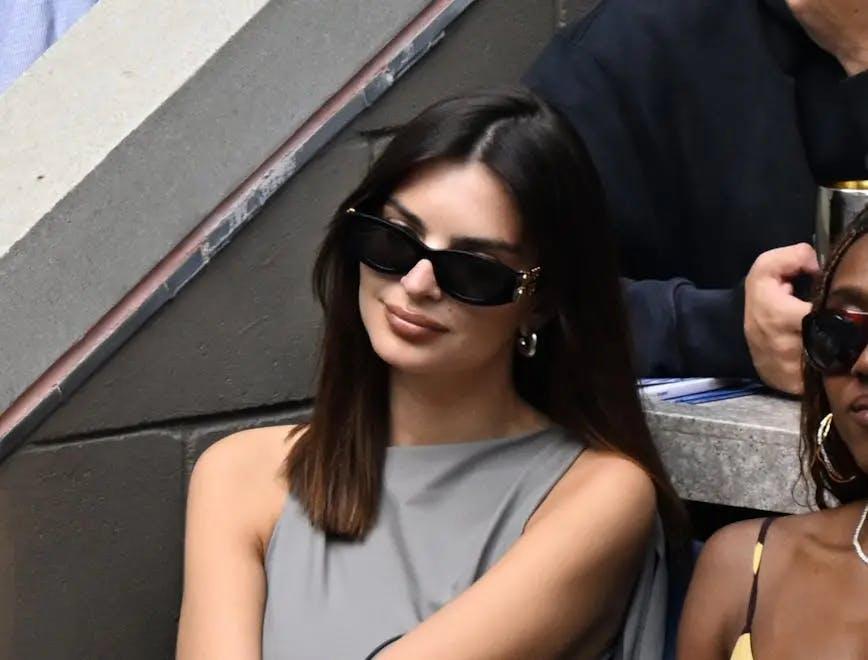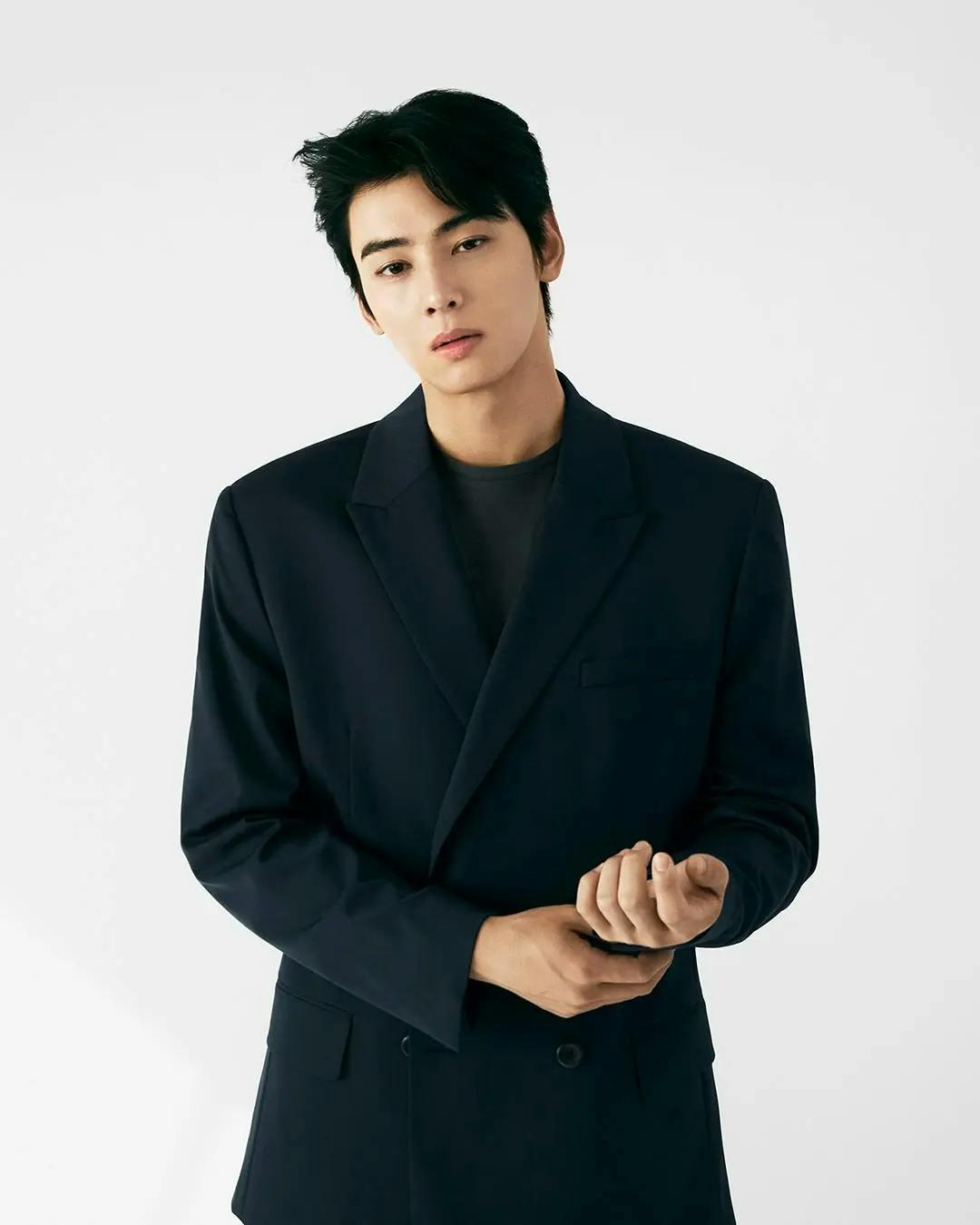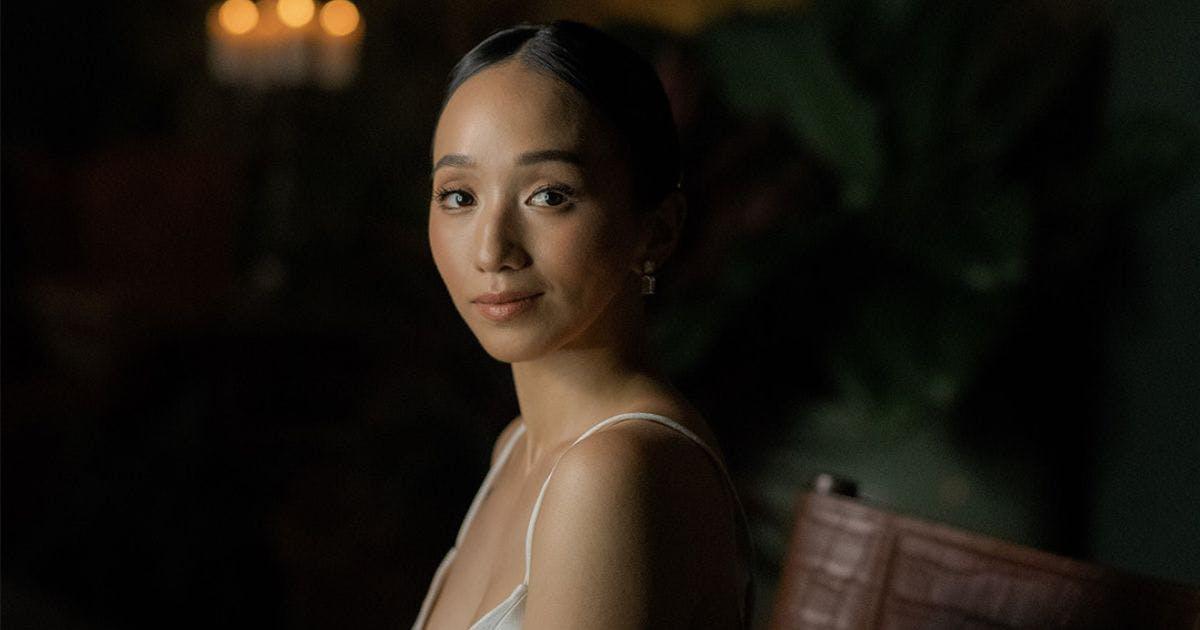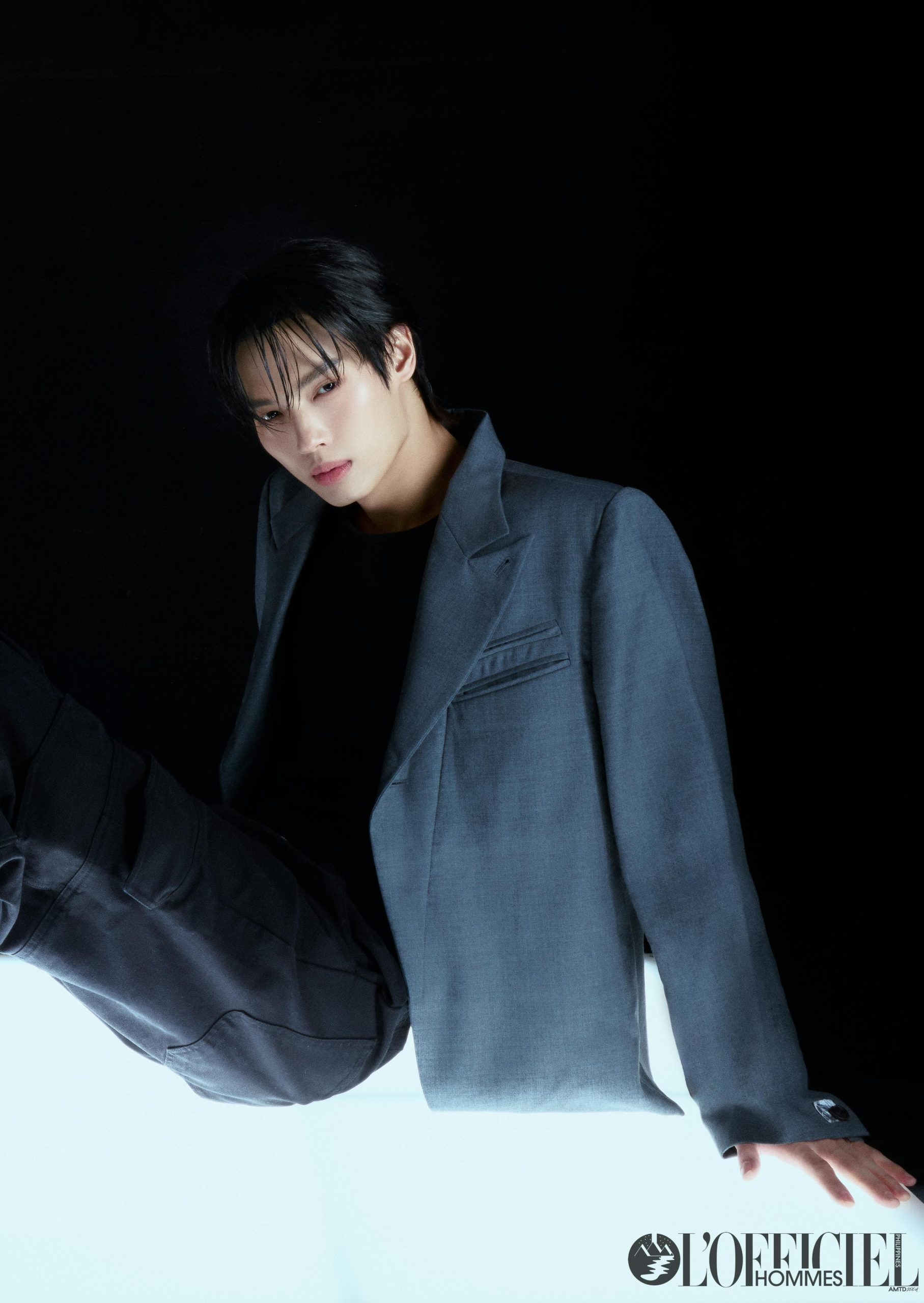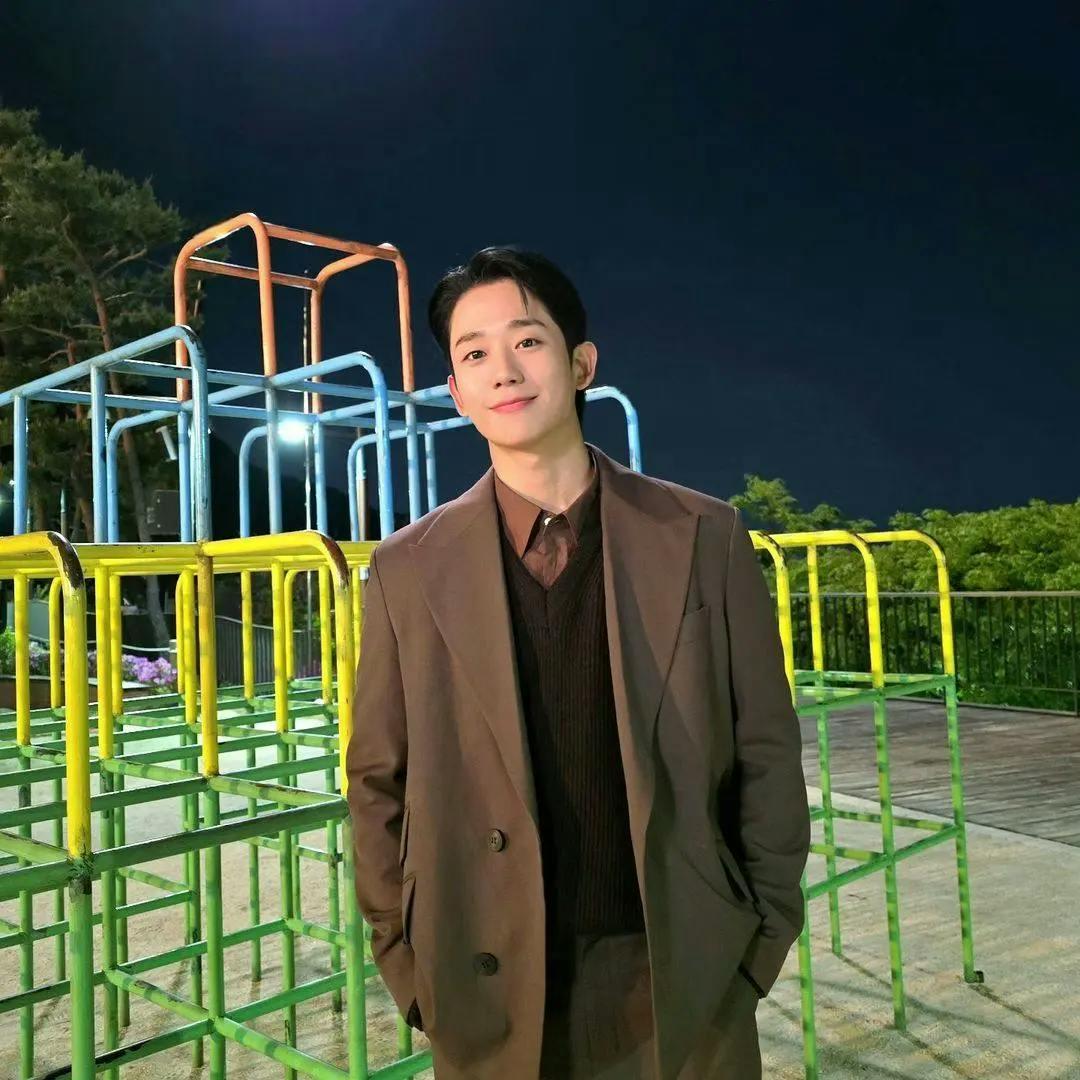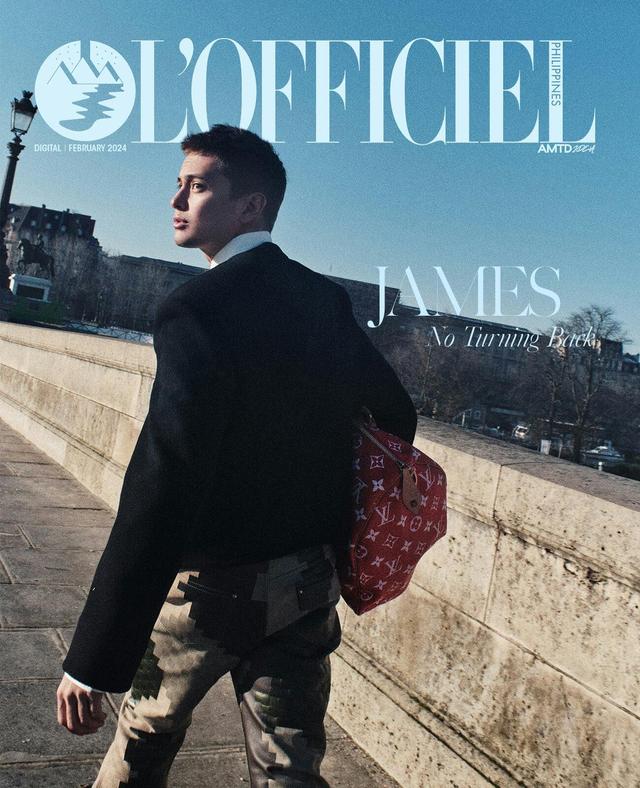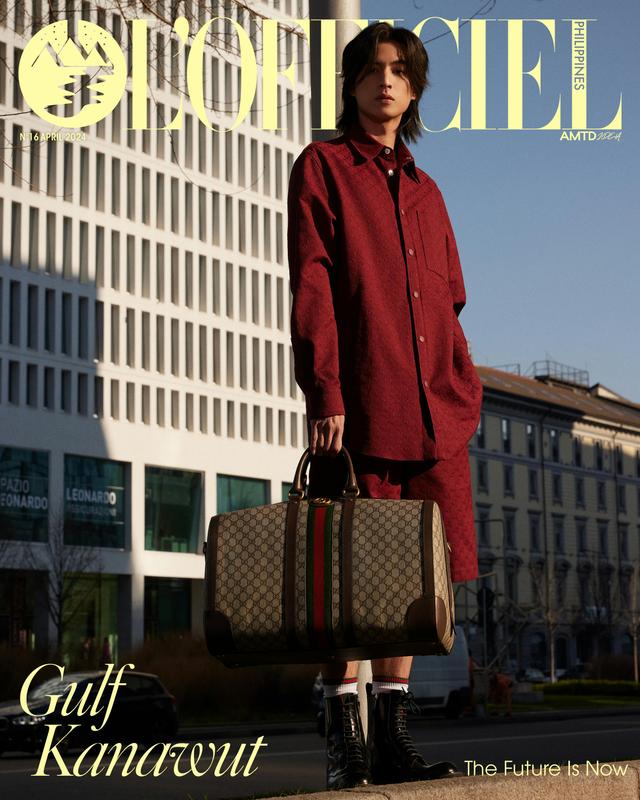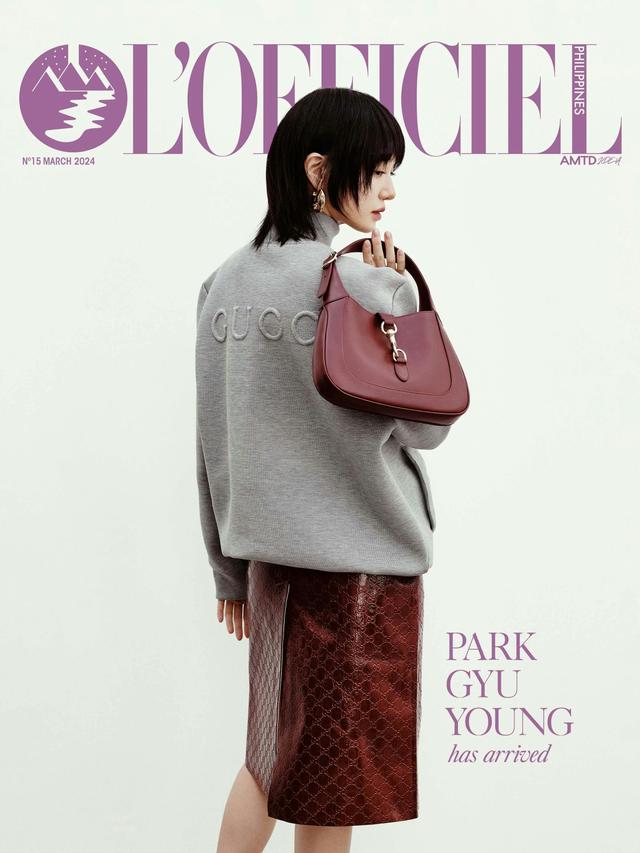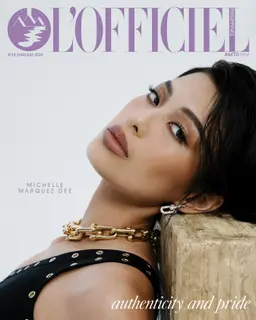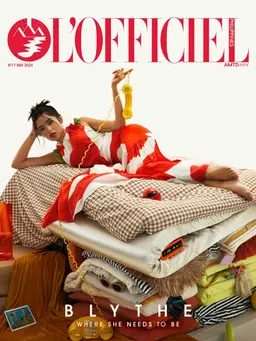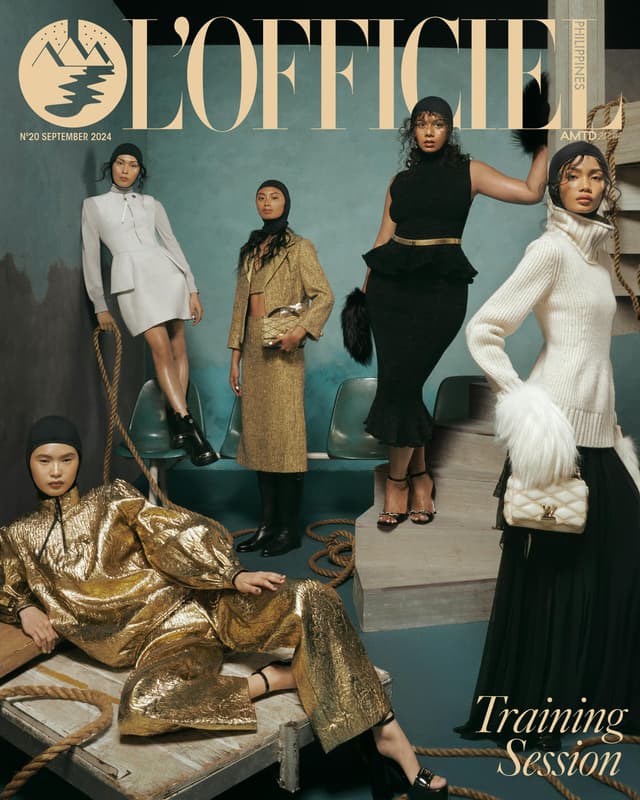Denise Julia carves her path as a singer-songwriter by feeling the world around her with verve and vulnerability. Known for her situation-coded soundscapes, she helps listeners navigate the murky boundaries of love from rocky starts to slippery ends.
09.13.2024 by Tin Dabbay
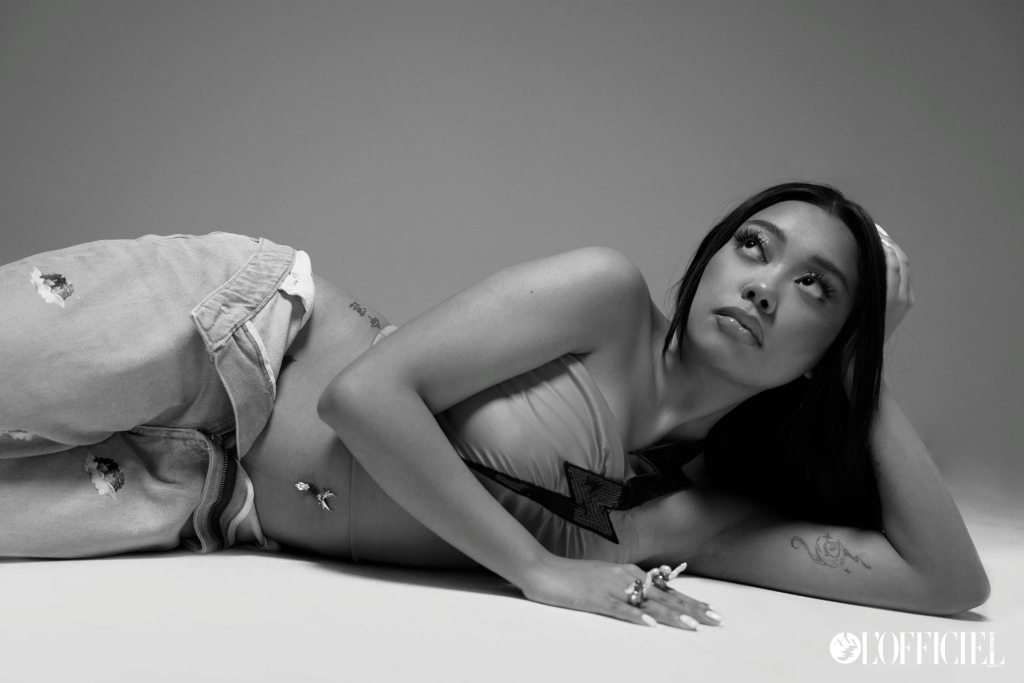
PHOTOGRAPHY Regine David
STYLING Quayn Pedroso
It’s easy to get hooked on Denise Julia. Her silky notes sink in your memory like the well-meaning voice of your ride-or-die. Its beat thumps with a raw edge that cuts through monotony like liquid courage pumping you up on a club night. Before you know it, you’re under her spell glimmering under the haze of 90s nostalgia.
But her energy isn’t limited to her recordings. Off the record, performing is second nature. During the shoot for L’Officiel, she would belt out a tune here and insert a shimmy there without effort. It doesn’t matter whether it’s to the tune of Mariah Carey’s Fourth of July or Aaliyah’s At Your Best. All things considered, it’s a serve.
Born in 2002, she moves as if she has lived through the era she references. Though she’s feeling under the weather during our conversation, she pushes herself to the limit. “I just came from the flu. Everybody’s sick right now, but I’ve been working on my recent release, Twin Flames. We shot the music video for it the other day. Apart from that, I’m also finishing, Sweet Nothings; the first chapter came out last year. It’s pretty busy now, but busy is good,” she says.
With her drive and talent, things are bound to get busier, but instead of topping the charts of MTV where her heroes met their fame, she’s dominating our screen time by becoming one of Asia’s most promising breakout stars who incites a feverish demand on TikTok and YouTube. Her song B.A.D. alone has amassed over 17 million YouTube views.
The chanteuse continues to set the stage for more success including collaborations with like-minded artists such as Vietnamese-American singer, thủy. Despite being strapped with the longings and heartbreaks of youth together with her fellow Gen-Zs—there’s no doubt Denise can keep expanding her territory beyond borders and across generations as long as she never drops the mic.
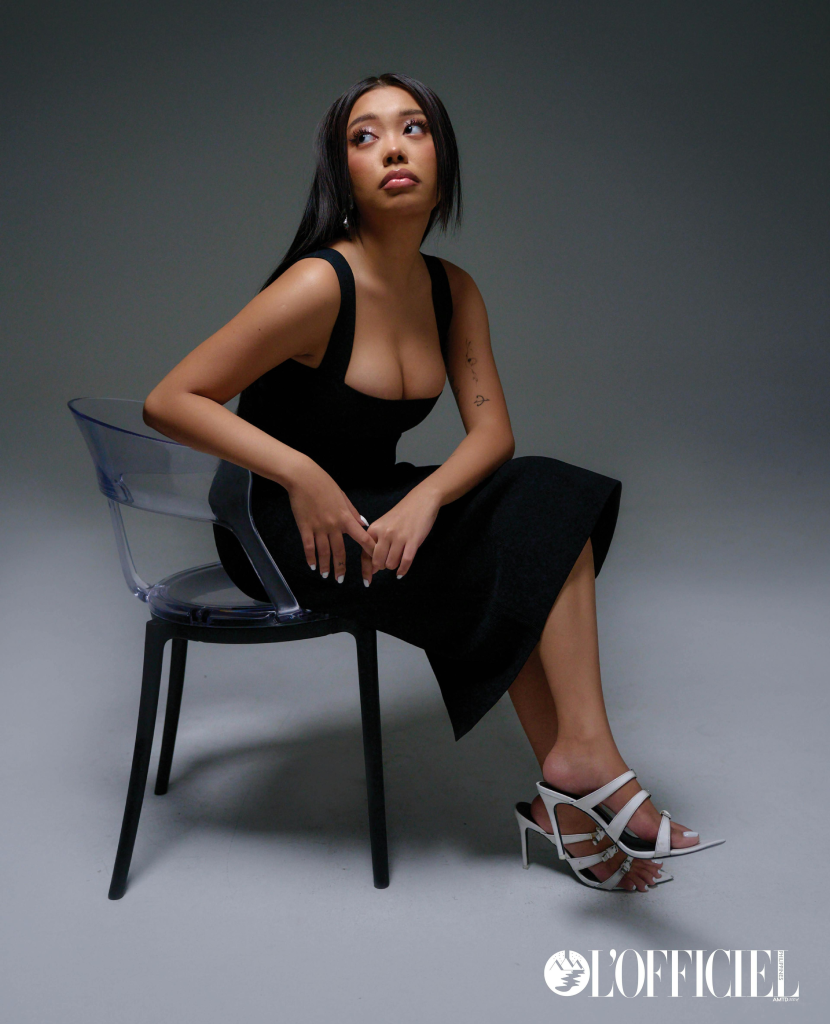
Body top and skirt, VB Shoes, Artist’s own
You have a distinct musical style. How did that come about?
I grew up listening to a lot of 90s R&B. So, I think the women from that era—90s and 2000s era—helped me find my style and the aesthetic I wanted for my music and for myself. Some names include Beyonce, TLC, Aaliyah, and all those R&B women from that time.
Did you have mixtapes back then? It was a thing in the 90s, and your whole vibe reminds me of those CDs.
I did. I used to have it, but it wasn’t mine. It was my family’s. They love music, and those women of R&B that I know and keep talking about would be in those CDs. That’s kind of how I grew up listening to them because they would play the same songs and the same CDs every day.
Any significant song or music video that changed your life?
Crazy in Love. Oh, wow.
Iconic choreography. Speaking of which, do you dance a lot? You’re an awesome singer. Is dancing something you would consider doing more?
I used to not dance. The most that I danced would probably be in the club. I just started dancing recently but hopefully, things will improve in the future.
How did you start as a singer?
I started as a stage actress and then pursued public speaking. I would compete in some regional competitions back in grade school. In high school, I discovered my passion for songwriting and singing, but I was really shy. I only started singing or making covers and being public as a singer when I turned 18 and I moved out of my all-girls school. When I started doing it publicly, I started posting more on my socials. A few producers hit me up, and then we worked on a few tracks, and everything started to pop off. I was really shy. I wouldn’t sing unless I was alone in my room. I would have never imagined that I’d be doing it at this age.
What was the turning point in your career that led to a significant breakthrough?
Even though I was really shy before, I’ve always wanted to be like those 90s R&B women I mentioned. It’s just that I didn’t know how to start. When I broke out of my shell after leaving my all-girls high school, I felt like I needed to make a change. I wanted to be an entirely different person. I thought if I wanted to make a name for myself, I might as well start now.
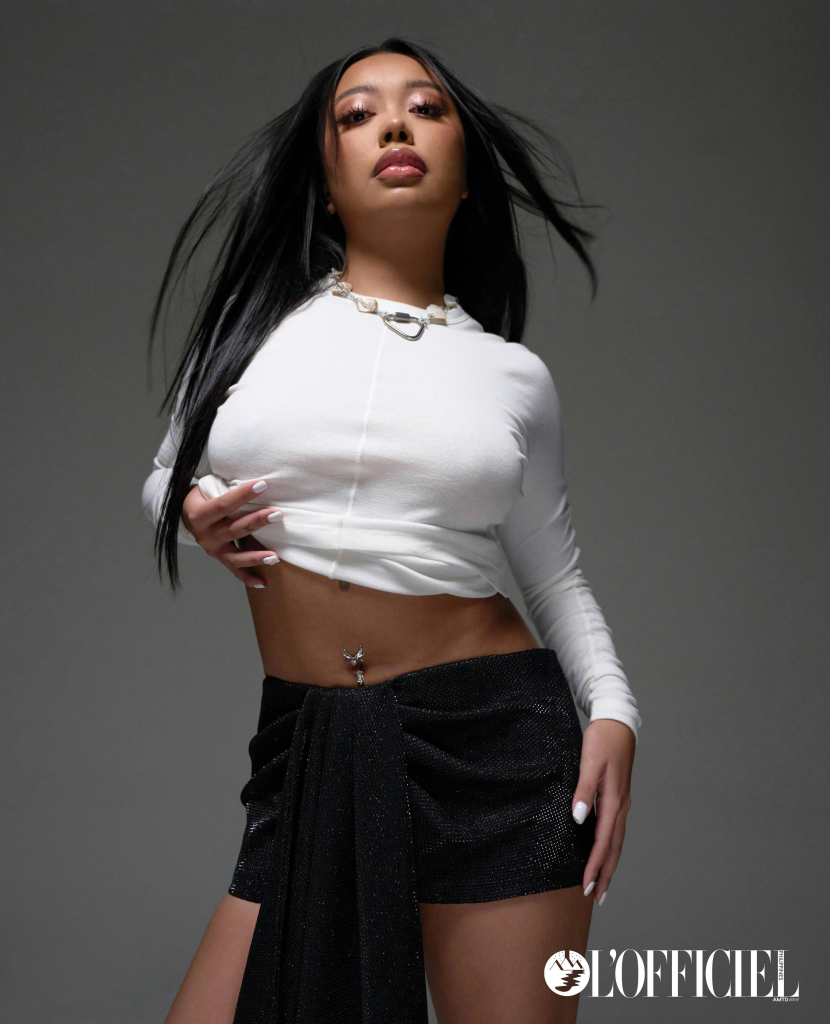
Carabiner necklace, ELEMENTARY White sleeves top, Y3 Skirt, EMAN RINOZA
I’m also from an exclusive school for girls and grew up in a conservative environment. Did you feel stifled in a way?
Oh, for sure. I feel like everybody has to follow a set of rules every day. We have to act a certain way. Once I left, I felt like a free person who could do whatever I wanted.
What can you say that people call you the patron saint of situations?
It’s really interesting as a title. Maybe it’s because of the lyrics. It started with my song Butterflies. That’s when they realized that the type of songs I make are perfect for situations. I didn’t even know what that term was until my fans started calling me the patron saint of situations. I had to search for it. I was like, oh, that’s the meaning of a situationship. Okay, I get it.
What experiences inspired those lyrics? Or is your process more about ideating stories that don’t necessarily have to be yours?
It’s both, but for sure, it’s more natural when it’s something that came out of my own experiences. I’m pretty much open with that with my fans. They know the stories. They knew what I was going through during that time. It’’s just a couple of people that I met growing up. I entered a situation with this public dude, and then I wrote a song about it. That’s how I made that connection with my fans. I’m open about the things that I’m going through. Transparency is a huge part of that.
Can you walk us through your creative process when writing and composing new music?
I either write about my own experiences or listen to my friend react to me about something, and then I would just end up writing about it. Usually, creativity comes to me at night. I would go through a couple of beats or I would write songs without a beat, just thinking of a melody, and then whatever experience or emotion that’s strong at that time, I’d end up writing about it. It could be straight out of a conversation with my friend telling me about whatever their partner did or what they’re going through. It could be me going through something.
What prompted you to write some of your songs?
butterflies were about this public situation that I had from before. The lyrics speak for themselves, like, meeting someone at the club. It’s very universal. That’s why people relate to it. It was very fleeting and described the situation perfectly. B.A.D. was just a freestyle. I played this beat, and then, I started singing the lyric, the chorus, and the hook. Sugar n’ Spice is a sapphire song that I wrote about my experiences with women. It’s very light and sweet. It focuses more on a non-toxic type of love.
Is songwriting your way of purging emotions? Do you feel better after it? Is it therapeutic?
Yes, for sure. That’s how every artist feels after they make a song. Oftentimes, it’s also a way of saying goodbye. Like, if you write a song about someone, you’re over them. You’re not looking back anymore.
Your online engagement is strong. What are the upsides and downsides especially since you’ve received backlash concerning issues about queerbaiting?
It’s important to focus on the positive. For example, my fans are really sweet. When that happened, it was expected because if you’re a girly girl artist who just came out, it’s not common for people to see that in the media. Like, why come out now? You would hear that from people. But, like I said, it was important for me to put it out because of the things that I want to fight for. Number one is more representation of queer girls that could look femme but still love who they want to love. I was really happy to see people feel safe when they heard my music.
“Confidence or being sexy is going after something you want. You know, just going for it, whatever it is.”
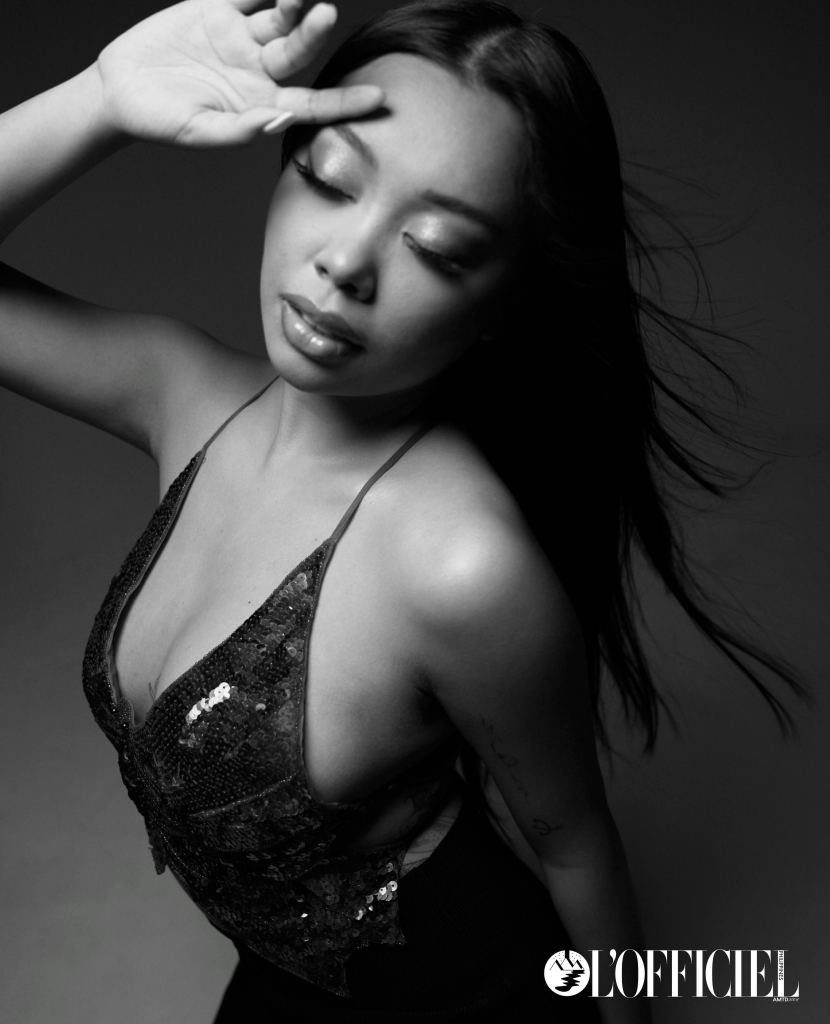
Vintage sequined top, IT’S VINTAGE Body skirt, VB
How did you become comfortable with your sexuality? It really comes out with your music, which is naturally sensual. Filipinos would often relate more to demure types. How did you break that pattern for yourself?
I wasn’t. I was just being myself. I wasn’t, like, “Oh my god, we need something very daring.” I wasn’t thinking about that. I was just thinking about making music and being myself. I like sexy stuff. I like looking sexy. I wanted to make music that represented that because I didn’t want to pretend to be someone I wasn’t. I came into the industry wanting to be as authentic as possible.
What do you consider sexy?
Confidence or being sexy is going after something you want. You know, just going for it, whatever it is. It’s about authenticity and not conforming to any standards or status quo.
How do you approach blending traditional Filipino elements with contemporary sounds in your music?
It’s a fusion. Many people would say my music sounds Western, but of course, it’s also Filipino. I’ve been wanting to show more of my culture. Like, we see that in B.A.D., for example, when I was making the music video, I wanted to show that I’m from my country and the Norges. I walk these streets. I grew up in Tondo. Even though the music is Western-influenced because of the music that I grew up listening to—culture-wise and personality-wise, it’s very Filipino. I show it with fashion, aesthetics, and telling my story of growing up.
How do you keep your sound fresh while staying true to your artistic identity?
I’m very much involved. I’m pretty much a control freak. Every step of the way, I have to be there. From writing to production—everything—a lot of it comes from a vision I have. Sometimes we would write over a beat and then switch up the whole thing after a few weeks. and reproduce everything. It also comes from intuition when I just feel like something would work.
What has been the most challenging aspect of your career?
I think it’s just being a woman. You just have to keep powering through and remember why you went into this industry in the first place. I have a good coping mechanism. I have a really good support system too.
What’s your coping mechanism?
My coping mechanism would be retreating from the outside world and just going back to being a listener of music.
How do you like listening to music? Are you the type who’s really into streaming or do you prefer vinyl?
I enjoy collecting CDs. I love physical albums. Streaming-wise, I like finding artists that no one else has found. I used to have an addiction to that. I would retreat from being an artist and go to the deepest, darkest depths of Spotify just finding really good artists.
Are you emotional?
Very. I’m a Pisces.
If your emotions were a landscape, what would it look like?
If my emotions were a landscape, it would probably be a sparkly lake in the middle of nowhere at midnight where the moon is very full, and it just reflects the water. It’s because the full moon brings out a lot of emotions. The water symbolizes how very free-flowing I am when I feel things and also sparkly because we like to dazzle a bit when we’re expressing our emotions.
Whenever I’m in the zone when I’m trying to feel things, that’s how I picture myself—swimming in the lake in the middle of a purplish night at full moon and the emotions are high and everything’s just very vulnerable.
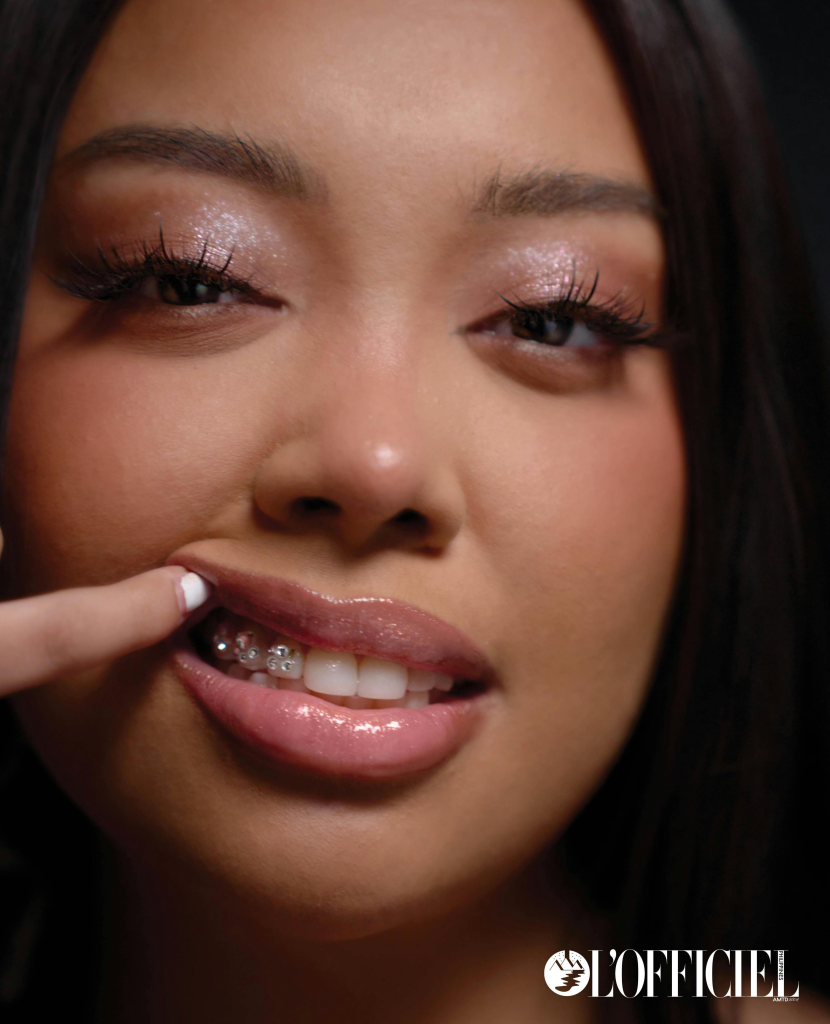
PRODUCED BY Tin Dabbay and Loris Peña
CREATIVE DIRECTION Tin Dabbay
ASSISTANT PHOTOGRAPHER Xavier Lancelot Mallari
MAKEUP Zidjian Paul
HAIR Gabriel Villegas
VIDEO Kevin Redder
SITTINGS Loris Peña

